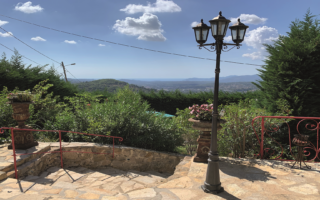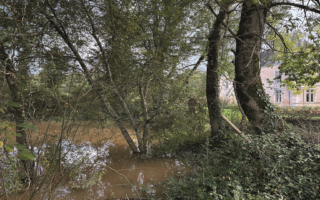Safeguarding your property in France
The furthest thing from your mind when you buy property in France perhaps, but what if the unthinkable happens, says Matthew Cameron…
It has long been acknowledged when buying a property in France, that there is an overriding imperative to consider the implications of French inheritance law, ie what will happen to the property when you die.
There has been talk recently that signs of an economic recovery are starting to appear. Throughout the recession many agents have spoken of the number of people, still interested in buying a property, who were just waiting for signs that better times were on the way. While in early summer 2009 it may be a little early to be contemplating the end of the recession, it may nevertheless be a good time to start planning a purchase and to be thinking about how you are going to structure it. Owning a property through a company, although once very popular, is not now considered the most suitable method, so it is wise to think carefully about estate planning as a first step.
In the first instance we will consider a property purchase by a couple then we shall briefly look at some of the options available for structuring the purchase. It should be noted that there are many possible options, and there is no replacement for a detailed and early analysis of your position and intentions with your solicitor. What happens to property under French law is vastly different to the UK, so while you may well sell the property at some point, you should not ignore what may happen to it on your death.
A standard format for a purchase by two people would be to buy en indivision – that is, jointly and such that each person’s interest would pass to his beneficiaries – not necessarily their surviving spouse. Children have a fixed interest that cannot be overruled through ownership en indivision, even if a will purported to leave everything to the surviving partner. If the couple were not married, then it may well not be sensible to leave anything to each other anyway as otherwise the issue of inheritance tax becomes important for unmarried couples (unless they have completed a PACS – a Pacte Civil de Solidarit�) as any inheritance would be rated at 60 per cent tax.
Tax reduction
Ownership en indivision then, much like a British tenancy in common, means that each co-owner will leave his share to his reserved heirs, with the possibility that some will go to the surviving owner, whether by force of law or generally by virtue of a will. It does mean that the survivor could be left owning property with the deceased’s children. This is likely to result overall in the most efficient method of inheritance tax reduction.
It can also result in an even split of property between the children of the couple, especially where those children come from previous marriages. However, the couple may prefer the survivor to inherit all of the property, irrespective of the children. There are ways of ensuring this.
The concept of joint ownership en indivision can be further amended to suit one’s specific requirements – an uneven split in the property may be suitable, for example where one partner has put more into the purchase, or to reach an even division of the property between the different children of a couple. The owners can also consider granting each other a life interest in their respective shares, although such steps may cause other fiscal disadvantages and should not be entertained without due consideration.
If a couple is not married, perhaps having completed a Pacte Civil de Solidarit�, then in general the most suitable method will be ownership en tontine. By this option, the survivor of a joint purchase will own the property absolutely. The tontine clause must be inserted in the initial purchase deed – the acte de vente; it cannot be added later. It does mean that where there are children from previous relationships, then the children of the first to die will be effectively disinherited. It can lead to problems in the event of a breakdown in your relationship and rarely is it good for tax reduction. It may, though, be the only option.
If, on the other hand, you are married and have no children other than from this marriage, then perhaps a more suitable option would be to effect a change of matrimonial regime, to apply French matrimonial law to your French house. In such a case, rather than a deceased’s share of a property passing immediately – in part at least – to the children, it is the surviving spouse who takes the whole of the property.
Change of regime
As already mentioned, French law does not like to see children disinherited; here the children are not being disinherited, rather their interests are deferred to the death of the surviving spouse. It is on the basis of this logic that a change of matrimonial regime would not generally be suitable where there are children from other relationships; if the parent of those children were the first to die, they would be disinherited if everything were to pass to the surviving spouse – their step-parent. In such circumstances, the Code Civil anticipates at article 1527 that those children would have a right to set aside the change of regime.
Again, in such a situation, if the most important consideration for the couple buying the property was an assurance that as far as possible the surviving partner would inherit all of the property, it is likely that the inclusion of a tontine clause would be the best option.
I mentioned previously that it is rarely suitable for couples to buy a property in France through a company structure. There are several reasons for this, one being the potential for corporate taxation regimes being applicable, depending on the form of any business activity carried out at the property. Similary, nor would the structure work if the couple wanted to use the property as a permanent residence. Furthermore, French case law has shown in the past that where a company is constituted with the main aim of disinheriting the children, then those children would have a chance to set the whole structure aside. Such a risk of challenge is far less likely if a tontine structure is used.
In this article I have only considered a few of the various options for ownership as a couple. There are many different factors that can affect the final decision, such as place of residence, personal wishes, financial situation, children, tax, and French and English law. Therefore, it is always wise to seek early advice, well in advance of any purchase in France.
Fact fileAshton Graham
Share to: Facebook Twitter LinkedIn Email


